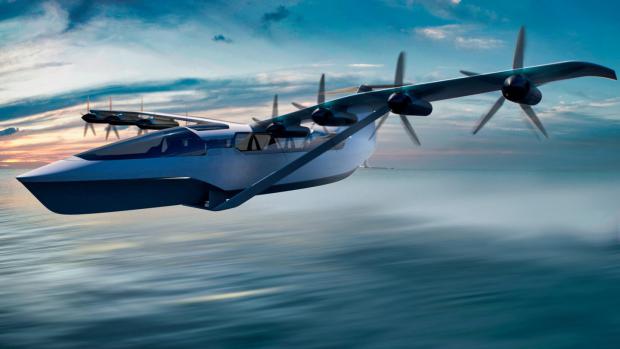
Breaking News
 Boston Dynamics' Atlas just did a roundoff back handspring… yeah we're cooked
Boston Dynamics' Atlas just did a roundoff back handspring… yeah we're cooked
 It's Not Just Pakistan - Foreigners from Around the World Who Are Not US Citizens...
It's Not Just Pakistan - Foreigners from Around the World Who Are Not US Citizens...
 Elon Musk's Darkest Secret - Dr. Eric Weinstein
Elon Musk's Darkest Secret - Dr. Eric Weinstein
 Puerto Rico's Rep. Rivera Turned The Halftime Show Into an Anti-ICE Rant (VIDEO)
Puerto Rico's Rep. Rivera Turned The Halftime Show Into an Anti-ICE Rant (VIDEO)
Top Tech News
 SpaceX Authorized to Increase High Speed Internet Download Speeds 5X Through 2026
SpaceX Authorized to Increase High Speed Internet Download Speeds 5X Through 2026
 Space AI is the Key to the Technological Singularity
Space AI is the Key to the Technological Singularity
 Velocitor X-1 eVTOL could be beating the traffic in just a year
Velocitor X-1 eVTOL could be beating the traffic in just a year
 Starlink smasher? China claims world's best high-powered microwave weapon
Starlink smasher? China claims world's best high-powered microwave weapon
 Wood scraps turn 'useless' desert sand into concrete
Wood scraps turn 'useless' desert sand into concrete
 Let's Do a Detailed Review of Zorin -- Is This Good for Ex-Windows Users?
Let's Do a Detailed Review of Zorin -- Is This Good for Ex-Windows Users?
 The World's First Sodium-Ion Battery EV Is A Winter Range Monster
The World's First Sodium-Ion Battery EV Is A Winter Range Monster
 China's CATL 5C Battery Breakthrough will Make Most Combustion Engine Vehicles OBSOLETE
China's CATL 5C Battery Breakthrough will Make Most Combustion Engine Vehicles OBSOLETE
 Study Shows Vaporizing E-Waste Makes it Easy to Recover Precious Metals at 13-Times Lower Costs
Study Shows Vaporizing E-Waste Makes it Easy to Recover Precious Metals at 13-Times Lower Costs
Boat-Plane Hybrid That Needs No Runway Could Transform Travel...

The future of travel is bold, with a boat-plane hybrid set to transform short distance ferry services.
From the Virgin Hyperloop to HAV carbon-free dirigibles to self-driving cars to, now, this, the REGENT "seaglider" is an electric transport plane that can do 180 mph, or around six-times the speed of a ferry, and with double the range of electric aircraft, but with half the manufacturing costs.
All these pros are down to its unique design as essentially a trio of vehicles in one, which the company believes will seize control of a market for short flights/ferry routes such as LA to Santa Barbara or San Francisco, or New York to Boston, with maybe Washington, D.C. thrown in there as well.
When loading and offloading passengers, the seaglider rests on the sea like a normal seaplane or boat.
When operating within the crowded waters of a port, the seaglider deploys its hydrofoils, matching its impressive propulsion with the maneuverability of the foils below.
Once on the open sea, the foils are withdrawn and it takes on the aspects of a "wing-in-ground effect vehicle," a design invented all the way back in the 1960s, that uses high speeds to hover just above the surface of the water.
So far REGENT's founders have raised almost $10 million from investors, which have included Mark Cuban and Peter Thiel.

 Smart dust technology...
Smart dust technology...

